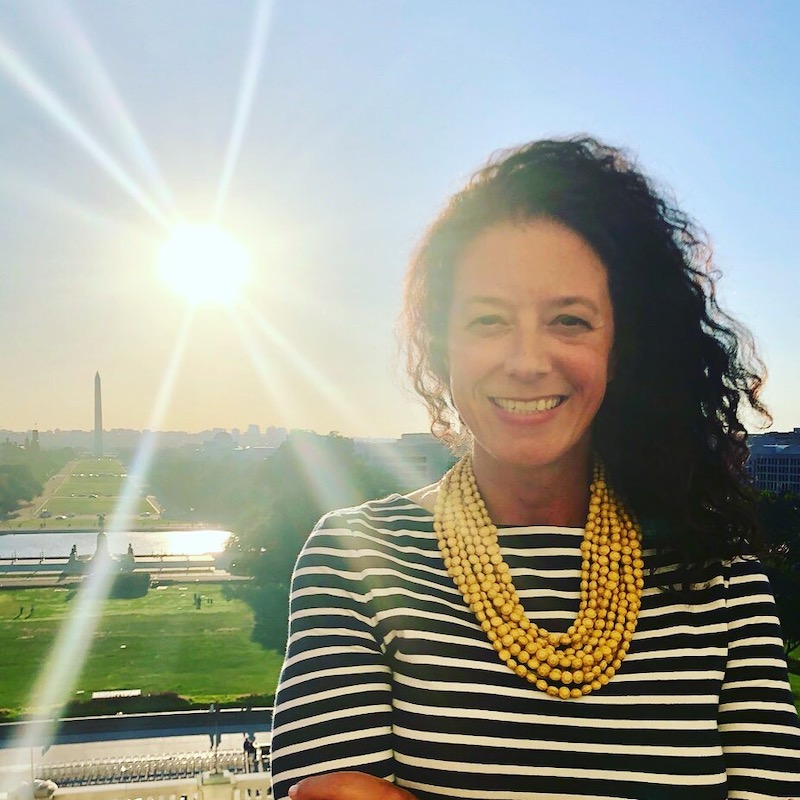
Kristin Taylor
Associate Professor
313-577-2630
313-993-3435 (fax)
2064 Faculty/Administration Building
Website(s)
Department
Kristin Taylor
Kristin Taylor is an associate professor in the Department of Political Science at Wayne State University. Her research investigates the politics of disasters by examining learning about hazards in government after a disaster. Her work is motivated by a desire to understand which community characteristics, information sources, and political factors influence how governments make policy choices to protect vulnerable populations and enhance resilience.
She has studied policy learning about mitigation and recovery in city and county governments in Texas after Hurricane Harvey. In addition, her work has unpacked the nuances of policy learning about risk and resilience after water infrastructure failures in a national study of drinking water systems. In the context of the COVID-19 pandemic, Dr. Taylor and colleagues studied the impact of long-duration crises on policy learning and change. She studied how policy entrepreneurs and advocates can effectively encourage individuals to undertake risk mitigating behaviors in contentious political conditions. Dr. Taylor’s research has been supported by awards from the National Science Foundation and is the recipient of the Theodore Lowi Award for the best article in Policy Studies Journal from the American Political Science Association.
Most recently, Dr. Taylor works in collaboration with researchers from nine universities and private industry working on the National Full-Scale Testing Infrastructure for Community Hardening in Extreme Wind, Surge, and Wave Events (NICHE) program, a 4 year $12.8M cooperative agreement awarded from the National Science Foundation. Dr. Taylor is the lead researcher on the stakeholder engagement activities of NICHE. NICHE responds to a pressing national imperative to promote more resilient communities by reducing losses, population displacement, and outmigration due to climate-driven hazards. NICHE is a part of the Natural Hazards Engineering Research Infrastructure (NHERI) Network.
Research interest(s)/area of expertise
Public policy process, hazards and disasters, policy and governance failure, policy narratives
Education
- Ph.D. in Public Administration, North Carolina State University
- Master of Community Planning, University of Cincinnati
- B.A., Ohio University
Awards and grants
- NSF RAPID: Constraints on Policy Learning After Disaster
- NSF CRISP 2.0: Water and Health Infrastructure Reslience and Learning
- National Science Foundation, Mid-scale RI-1: National Full-Scale Testing Infrastructure for Community Hardening in Extreme Wind, Surge and Wave Events. 2022-2026
News mentions
- Column: Compassion and decency are lost amid wildfires as California foes seek cheap political points
- Designing the world's largest wind-wave research facility
Selected publications
- Taylor, Kristin, Rob A. DeLeo, Elizabeth Albright, Elizabeth A. Shanahan, Meng Li, Elizabeth A. Koebele, Deserai Crow, and Thomas A. Birkland. 2023. “Policy Entrepreneurs and Individuals: Influence and Behavior in Pandemic Response.” Public Administration Review, April, puar.13629. doi.org/10.1111/puar.13629
- Shanahan, Elizabeth A, Rob A DeLeo, Elizabeth A Albright, Meng Li, Elizabeth A Koebele, Kristin Taylor, Deserai Anderson Crow, et al. 2023. “Visual Policy Narrative Messaging Improves COVID-19 Vaccine Uptake.” Edited by Jay Van Bavel. PNAS Nexus 2 (4): pgad080. doi.org/10.1093/pnasnexus/pgad080
- Laskey, Allison B.; Erin Stanley; Khairul Islam; Sara Schwetschenau; Joanne Sobeck; Richard Smith; Shawn P. McElmurry; Paul Kilgore; Kristin Taylor; Matthew W Seeger. Forthcoming. "Perspectives and Propositions on Resilience as Interdisciplinary, Multi-Level and Interdependent". Natural Hazards Review. DOI: 10.1061/NHREFO/NHENG-1471
- Taylor, Kristin, Nathan Jeschke, and Stephanie Zarb. 2023. “Analysing the Contextual Factors That Promote and Constrain Policy Learning in Local Government.” Policy & Politics 1 (2023): 1–18
- Zarb, Stephanie, and Kristin Taylor. 2023. “Uneven Local Implementation of Federal Policy after Disaster: Policy Conflict and Goal Ambiguity.” Review of Policy Research 40 (1): 63–87
- Anderson, Sarah E, Rob DeLeo, and Kristin Taylor. 2022. “Legislators Do Not Harness Voter Support for Disaster Preparedness.” Risk, Hazards & Crisis in Public Policy
- Crow, Deserai A, Rob A DeLeo, Elizabeth A Albright, Kristin Taylor, Tom Birkland, Manli Zhang, Elizabeth Koebele, Nathan Jeschke, Elizabeth A Shanahan, and Caleb Cage. 2022. “Policy Learning and Change during Crisis: COVID‐19 Policy Responses across Six States.” Review of Policy Research
- Day, Ashleigh M, Khairul Islam, Sydney O’Shay, Kristin Taylor, Shawn P McElmurry, and Matthew W Seeger. 2022. “Consumer Response to Boil Water Notifications During Winter Storm Uri”
- Taylor, Kristin, Rob A DeLeo, and Thomas A Birkland. 2022. “Agency and Legislative Oversight as Problem Feedback: The Case of the Mid-Michigan Dam Failures.” Wayne L. Rev. 68: 31
- Taylor, Kristin, Stephanie Zarb, Nathan Jeschke, Joanne Sobeck, Richard Smith, Matthew Seeger, and Shawn P McElmurry. 2022. “An Exercise in Disaster: Does Policy Learning Occur after a Tabletop Crisis Scenario?” Risk, Hazards & Crisis in Public Policy
- Birkland, Thomas A, Kristin Taylor, Deserai A Crow, and Rob DeLeo. 2021. “Governing in a Polarized Era: Federalism and the Response of US State and Federal Governments to the COVID-19 Pandemic.” Publius: The Journal of Federalism 51 (4): 650–72
- Rob A. DeLeo, Kristin Taylor, Deserai A. Crow and Thomas A. Birkland. 2021. “During Disaster: Refining the Concept of Focusing Events to Better Explain Long-Duration Crises.” International Review of Public Policy 3 (1)
- Taylor, Kristin, Marjorie Sarbaugh‐Thompson, and Steven Betz. 2021. “State Legislative Committee Deliberations: Why Some Issues Are Difficult and Where State Legislators Turn for Help.” Social Science Quarterly 102 (6): 2863–80
- Anderson, Sarah E, Rob A DeLeo, and Kristin Taylor. 2020. “Policy Entrepreneurs, Legislators, and Agenda Setting: Information and Influence.” Policy Studies Journal 48 (3): 587–611